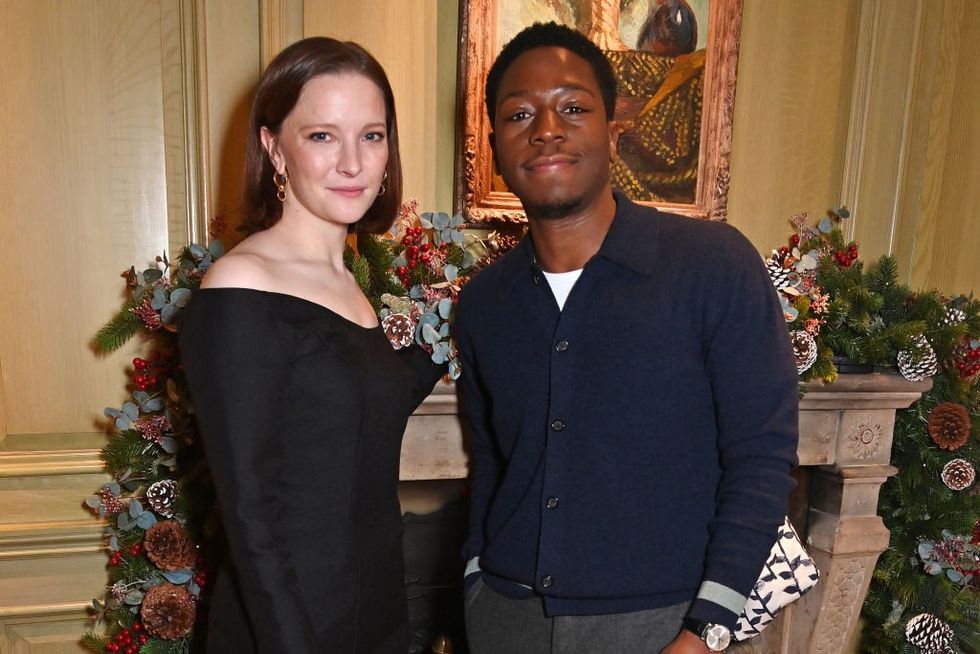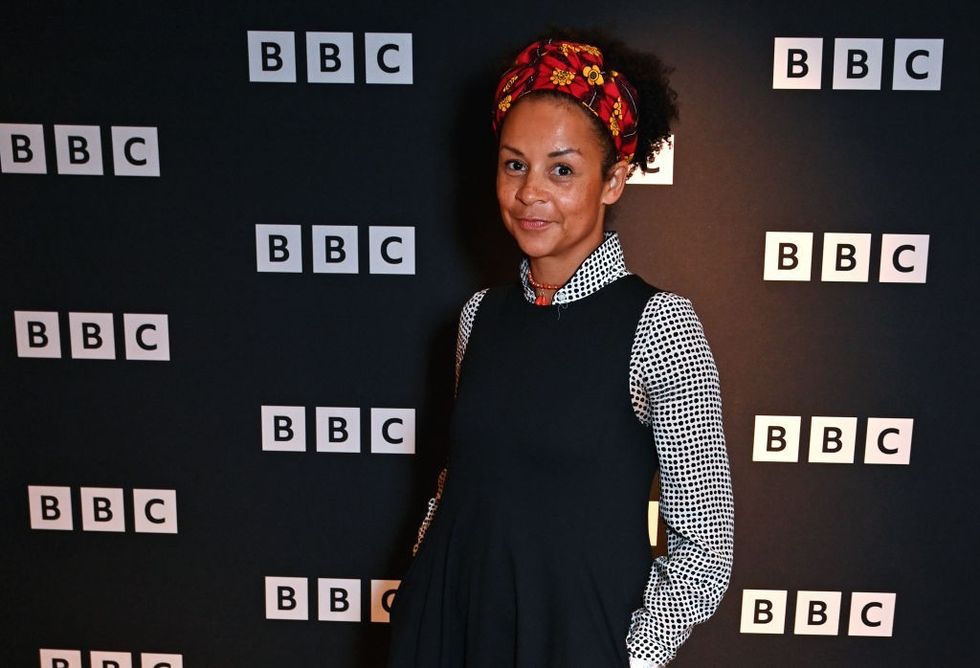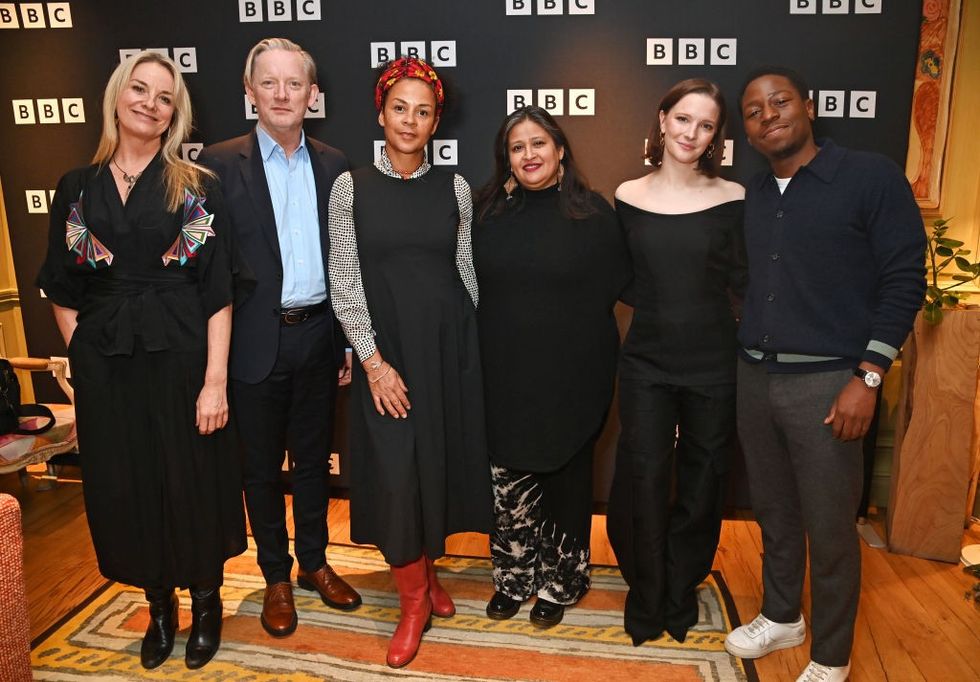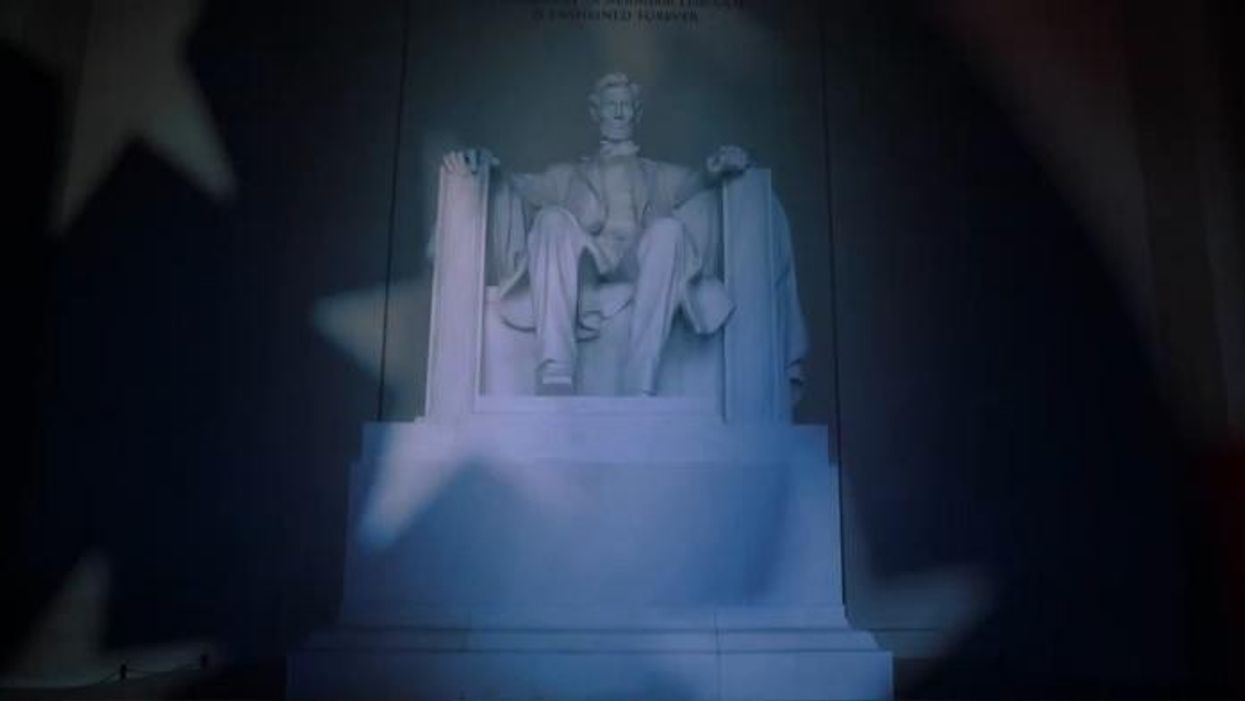Despite the criticism, Agatha Christie's family has welcomed the change
Don't Miss
Most Read
Trending on GB News
The BBC has been criticised for adding "Africa-inspired scenes" to their new Agatha Christie adaptation.
An adaptation of mystery writer’s 1939 book Murder Is Easy is being shown on the BBC tonight, Wednesday, December 27.
The show's director, Meenu Gaur has said that a story originally from West African Yoruba culture had informed sequences in the new TV adaptation.
She said she wanted to use "an allegory of colonialism" in the new drama.

Murder is Easy leads Morfydd Clark and David Jonsson
Getty
Gaur said: "I thought it was a great allegorical story about colonialism and empire and how by becoming a part of another culture - which is what empire and colonialism is - what part of us as people becomes invisible."
David Jonsson stars as the protagonist Luke Fitzwilliam, a young man trying to start a career in Whitehall. However, a mysterious encounter drives him to investigate a murder in an English village.
The British actor previously told The Telegraph: "It’s the first time they’ve had a black lead in the entire history of Agatha Christie. At first it really shocked me to the point I didn’t want to do it."
The opening scene of Fitzwilliam being chased features him holding an Ikenga, a sign of power among the Igbo people, an ethnic group in Nigeria, and the scene recurs throughout the first episode.
Screenplay writer Siân Ejiwunmi-Le Berre said: "It’s kind of an in joke – I wanted to start the show in the way that shows about black people have always begun: with a black man running through a forest apparently being chased by something, in a white shirt, and then I wanted to blow it up."
LATEST DEVELOPMENTS:

Murder is Easy screenplay writer Siân Ejiwunmi-Le Berre
Getty
The decision was defended by Christie's great grandson, James Prichard, who said she believed stories needed to shift depending on the medium.
Asked by the Radio Times what Christie would have made of changing Fitzwilliam’s heritage to Nigerian, James Prichard, 53, said: “Rule one: I never try to second-guess my great-grandmother – therein lies madness. One of the things I hold to is that the first few adaptations of her plays were done by other people, and she didn’t like them because she didn’t think they were radical enough for the change in medium.
“She recognised that, when you shift the medium, you need to shift the story. It does give us a degree of licence to change things, but I also believe these are adaptations, not translations, and you are always looking at the story from where you are now, 90 years after this was first written.
“But the story remains central, as does something essentially Christie. I think we know what it is, and whether it’s there or not. And it’s definitely there in Murder Is Easy."

Tamzin Outhwaite, Douglas Henshall, Sian Ejiwunmi-Le Berre, Meenu Gaur, Morfydd Clark and David Jonsson from the BBC's new Murder is Easy
Getty
Speaking about the decision to cast Jonsson as the lead, Siân Ejiwunmi-Le Berre said: "Obviously Luke Fitzwilliam is a white man, he’s a returning colonial police officer from a fictional place and throughout the book, Christie describes him as being brown.
"Now, I’m a brown person, a brown woman, and…I just started thinking about him as a black person pretty much from the get-go and we decided to put it in the 1950s.
"My grandfather came over in the 1930s and my father came over in the 1960s and I really wanted to talk about their experience as black immigrants in the year that we are celebrating Windrush.
"[I wanted] to talk about the other black entries into this country and how that happened and our place here, so that is one very obvious change [from the book]."










